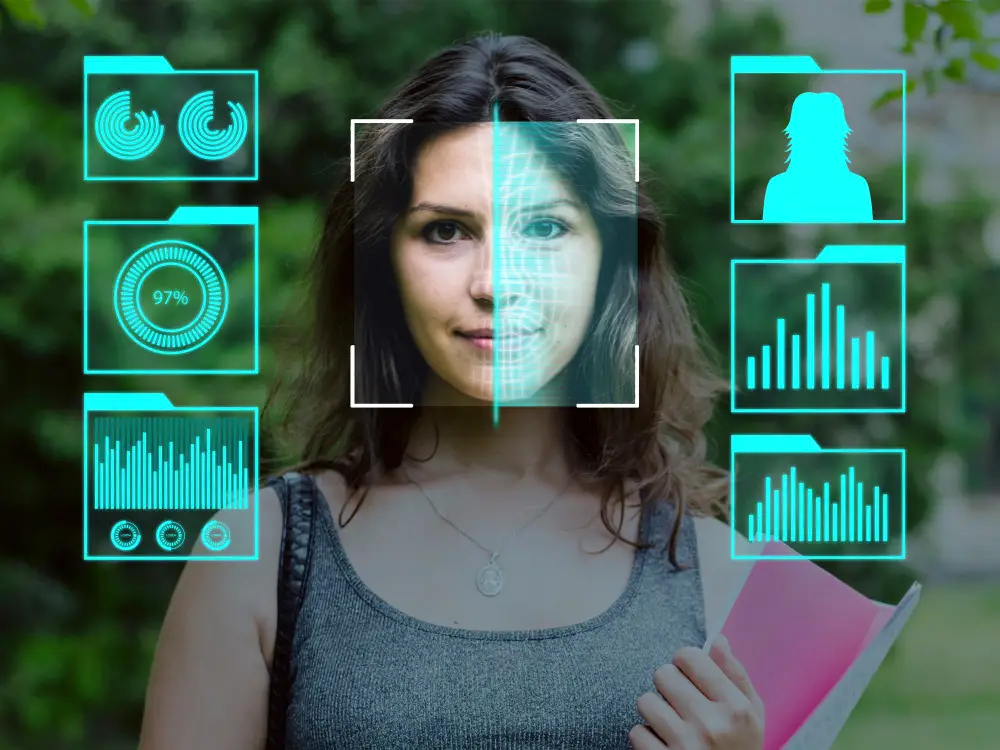Recruiting top talent is no longer just about job postings and resumes—artificial intelligence (AI) is transforming how companies find and hire employees. In a world where competition for skilled professionals is fierce, leveraging AI can give businesses the edge they need to attract the best candidates. But how can organizations successfully incorporate AI into their recruitment process? This guide explores the steps to create an effective AI-powered hiring process, backed by real-world examples and proven strategies.
Why AI in Recruitment is the Future
Recruitment involves massive amounts of data, from reviewing applications to scheduling interviews. Traditional methods are often inefficient, with 52% of hiring managers admitting they spend too much time on unqualified candidates (LinkedIn, 2022). AI eliminates inefficiencies by automating repetitive tasks and analyzing data at lightning speed.
For example, companies like Unilever have implemented tools such as HireVue, which uses AI-driven video interviews to evaluate candidates’ soft skills. Unilever reports that this approach reduced their recruitment time by 75%, allowing them to focus on onboarding high-quality hires faster than ever before.
Beyond time savings, AI offers data-driven insights. Tools like Entelo analyze candidate social profiles, career histories, and even public contributions to platforms like GitHub to identify hidden talent pools. A study by Entelo shows companies using AI increased hiring efficiency by 35%, proving its value for strategic recruitment.

Step 1: Define Your Recruitment Goals
Before implementing AI, companies must define clear hiring objectives. Are you looking to save time, reduce costs, or improve diversity? AI tools can be tailored to meet these goals.
IBM, for instance, designed an AI system to detect gender-biased language in job descriptions. This adjustment led to a 15% increase in female applicants within a year, demonstrating how AI aligns recruitment with broader company goals like diversity and inclusion.
Additionally, organizations like Google leverage AI in recruitment to align candidate skills with future business demands. Through predictive analytics, Google identifies trends in the job market and proactively recruits candidates who match the company’s evolving needs.
Step 2: Select the Right AI Tools
AI recruitment tools come in various forms, from resume screening software to interview analysis platforms. Tools like Hiretual allow companies to filter thousands of resumes, identifying candidates who best meet job requirements.
A prime example is L’Oréal, which processes millions of applications annually. By integrating AI for resume analysis and personalized candidate updates, they’ve reduced applicant drop-off rates by 30%, keeping the best talent engaged.
Companies also benefit from tools like LinkedIn Recruiter, which uses machine learning to recommend candidates based on similar profiles of past successful hires. LinkedIn’s AI algorithms helped a mid-sized IT firm in California cut sourcing time by 40%, as reported by Business Insider.
Step 3: Train Your Hiring Teams
AI isn’t a replacement for human judgment—it’s a tool to enhance it. Training hiring teams to interpret AI-generated insights ensures a balance between data-driven precision and human intuition.
Hilton, for example, automates 80% of its hiring process with AI tools, allowing managers to focus on final interviews. This combination of technology and human input earned Hilton a spot on Fortune’s “Best Places to Work.”
Similarly, AT&T integrates AI to assess candidates’ technical knowledge while leaving cultural fit evaluations to hiring managers. This approach ensures the best of both worlds, as technology handles the technical evaluation while humans focus on interpersonal elements.

Step 4: Ethical AI Use is Crucial
While AI offers efficiency, ethical considerations are critical. Algorithms must be regularly audited to prevent unintended biases. Amazon’s recruitment AI, for example, faced backlash for favoring male candidates. The lesson? Companies must prioritize responsible AI practices to avoid similar pitfalls.
A great alternative is Eightfold.ai, which ensures bias-free recruitment by analyzing objective data points rather than demographic markers. Moreover, Microsoft has invested heavily in ethical AI practices by creating transparency dashboards that allow hiring managers to understand AI recommendations. These dashboards provide visibility into why certain candidates are prioritized, making the process fair and accountable.
Leveraging AI for Candidate Engagement
AI is not just for filtering resumes; it also enhances candidate engagement. Chatbots like Mya handle tasks such as answering FAQs, scheduling interviews, and providing real-time updates. A report by Gartner reveals that 80% of candidates appreciate prompt responses, even if delivered by AI.
One company excelling in this area is DHL, which reduced recruitment time by 50% using an AI chatbot to communicate with applicants. This improvement in response time has made DHL a preferred employer for logistics professionals.
Integrating AI with Predictive Analytics
Predictive analytics is a game-changer in recruitment. AI platforms analyze historical data to predict candidate success in specific roles. Accenture, for example, uses predictive tools to match candidates to positions based on skills, experiences, and behavioral traits. This has resulted in a 20% improvement in employee retention rates, saving the company millions in turnover costs.
AI-Powered Hiring Benefits
Integrating AI into your hiring process delivers measurable advantages:
- Time Efficiency: Companies like DHL report a 50% reduction in hiring timelines using AI chatbots.
- Cost Reduction: Automated processes cut recruitment costs by eliminating manual tasks.
- Better Candidate Matches: AI identifies patterns in top-performing employees, creating tailored profiles for future hires.
- Improved Candidate Experience: According to Glassdoor, 67% of candidates prefer AI-driven processes for faster responses and clear communication.
Challenges and Solutions in AI Adoption
Adopting AI isn’t without challenges. High implementation costs and data privacy concerns often deter businesses. However, the long-term benefits far outweigh the initial investment. For example, PepsiCo implemented AI-driven recruitment, which led to a 400% ROI within two years by improving employee retention and cutting turnover costs.
Additionally, compliance with privacy regulations like GDPR can seem daunting. Partnering with reputable AI providers such as SAP SuccessFactors, which emphasizes data security, ensures compliance while leveraging AI’s benefits.
You may also be interested – Outsourcing: Innovation and Flexibility in Evolution

Conclusion: Unlock Recruitment Potential with AI
AI has revolutionized recruitment, making it more efficient, equitable, and effective. By following these steps, your organization can create a hiring process that not only attracts top talent but also aligns with your long-term business goals.
Adopt AI today and discover how technology can transform your recruitment process into a competitive advantage.
Bibliography:
- LinkedIn Talent Solutions (2022). “Global Recruiting Trends.”
- Harvard Business Review (2019). “AI Bias in Recruitment.”
- Glassdoor Research (2023). “AI and Candidate Preferences.”
- Deloitte Insights (2021). “The Role of AI in HR.”
- Pymetrics. “Case Study: Unilever’s AI Transformation.”
- Business Insider. “AI Recruitment Success Stories.”
- Gartner (2023). “AI and Candidate Engagement Trends.”






